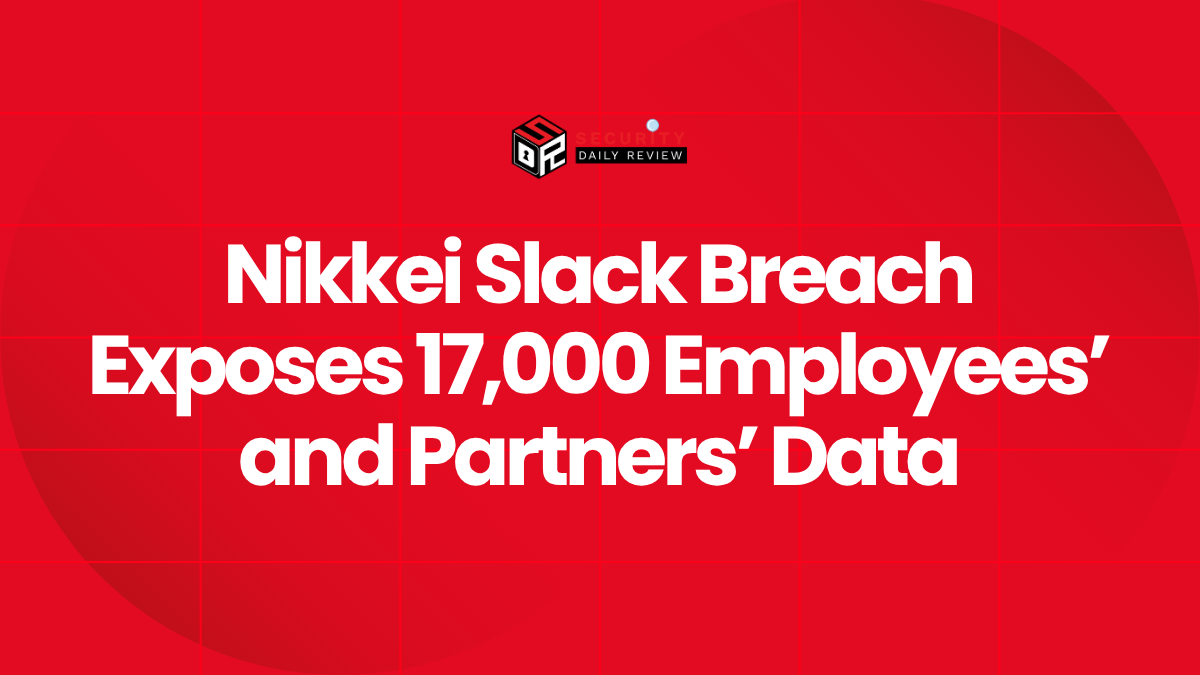In a development that underscores the risks of third-party collaboration platforms, Japanese media conglomerate Nikkei disclosed that its Slack environment had been compromised, resulting in the exposure of personally identifiable information (PII) for thousands of individuals. The breach, which was discovered in October 2023, impacted data belonging to over 17,000 employees and business partners.
Unauthorized Access Through Slack Raises Security Concerns
The incident highlights the growing challenge of securing cloud-based communication tools such as Slack, particularly when these platforms serve as central repositories for internal documents, messages, and sensitive data.
Slack Workspace Reportedly Used to Store Confidential Data
According to Nikkei, the breach occurred through its Slack workspace, which had been used as part of its internal communications and operations workflow. The attackers gained unauthorized access to archived messages and files, many of which contained PII.
The exposed data reportedly includes:
- Employee names, contact details, and affiliated departments
- Personal information of business partners
- Internal communications and business discussions
Nikkei confirmed that the attack did not compromise their core media platforms or editorial resources. However, the company acknowledged the gravity of the Slack compromise, given the sensitivity and scope of the exposed communications.
Timeline Reveals Delayed Public Disclosure
Although the unauthorized access occurred in October 2023, Nikkei did not publicly disclose the breach until May 23, 2024. The delay raises important questions about incident response timelines and transparency. It remains unclear whether investigators needed the extended period to determine the full scope of the breach or whether internal deliberations delayed the public statement.
During the months between discovery and disclosure, Nikkei says it conducted a thorough investigation, engaged external cybersecurity consultants, and worked to tighten Slack-related access controls.
Corporate Messaging Platforms Become High-Value Targets
The Nikkei breach is only the latest in a series of incidents involving cloud-based communication platforms becoming prime targets for cybercriminals. As remote collaboration becomes more entrenched in modern enterprises, cyber attackers increasingly view tools like Slack, Microsoft Teams, and Zoom as high-value entry points.
Risk Amplified by Improper Data Retention and Access Controls
Security professionals have previously warned against unrestricted use of collaborative platforms for storing sensitive business documents and communications. Slack, by default, retains message history and file uploads unless configured otherwise. Without proper data lifecycle policies or access restrictions, archived content can sit indefinitely, increasing the impact of a potential breach.
Best practices for securing enterprise messaging applications include:
- Implementing multi-factor authentication (MFA)
- Regularly auditing user access privileges
- Defining strict data retention and deletion policies
- Encrypting sensitive files prior to sharing
Nikkei has stated that it is now working to review Slack workspace configurations and reinforce internal security education.
Legal, Regulatory, and Reputational Implications Loom
The exposure of personal data for over 17,000 individuals has triggered compliance questions, particularly under Japan’s Act on the Protection of Personal Information (APPI) and related data protection frameworks. Nikkei has not clarified whether it has notified affected employees and partners directly, or if it has coordinated with data protection authorities.
Potential consequences for Nikkei may include:
- Regulatory fines or enforcement actions under APPI
- Civil litigation relating to privacy violations
- Damage to its corporate reputation and trust
With a significant footprint in both digital and print publishing, Nikkei’s brand is tightly linked to information integrity and credibility. A data security lapse of this magnitude could undercut its public trust unless followed by clear accountability and remediation actions.
Lessons Learned and Industry Takeaways
Nikkei’s Slack compromise reinforces the importance of treating collaboration tools with the same level of scrutiny as traditional IT systems. The breach also provides an instructive case for other organizations using third-party Software as a Service (SaaS) platforms.
Key takeaways for cybersecurity teams include:
- Regular threat modeling for collaboration environments
- Continuous monitoring of message platforms for anomalous activity
- Incident response plans that specifically cover SaaS application breaches
The growing sophistication of threat actors and the increasing reliance on digital communication tools make it critical for organizations to integrate application-level security into their broader information security programs.
As Nikkei continues its investigation and remediation, cybersecurity professionals will be watching closely to see how one of Japan’s most influential media organizations navigates the aftermath of this high-profile data breach.









